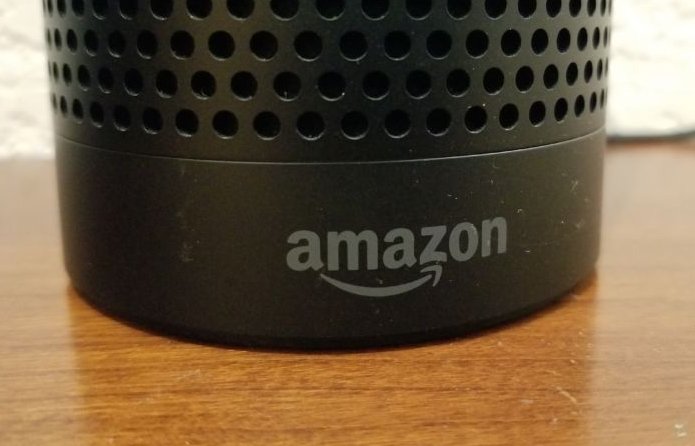Amazon must give up Echo recordings in double murder case, judge rules | Ars Technica
Alexa: what did you hear? —
New Hampshire judge orders data handover in 2017 stabbing case.
Cyrus Farivar - Nov 10, 2018 12:35 pm UTC
 Enlarge /
Enlarge /
Close-up of the base of an Amazon Echo smart speaker using the Alexa service, with Amazon logo visible, on a light wooden surface in San Ramon, California, May 31, 2018.
On Friday, a local judge in New Hampshire ordered Amazon to hand over Echo recordings made the day a Farmington couple was murdered at its home.
According to local media accounts, Strafford County Superior Court Presiding Justice Steven M. Houran compelled Amazon to disclose not only the audio files but any associated data—such as what phones were paired to the smart speaker—that may be connected to the January 2017 murder of Christine Sullivan and Jenna Pellegrini.
Prosecutors say the women were murdered by Timothy Verrill, who is due to stand trial in May 2019. Verrill has pleaded not guilty. Authorities have previously noted that the bodies of the women were found stabbed to death under a tarp, with a knife buried nearby.
"Investigators believe Sullivan was attacked in the kitchen of 979 Meaderboro Road where the Echo was located, and prosecutors believe there is probable cause to believe there is evidence on the Echo, such as audio recordings of the attack and events that followed it," CBS Boston reported, citing court documents.
Police seized the Echo into evidence during an initial search of the murder scene.
Amazon did not immediately respond to Ars' request for comment on Saturday morning, but a spokesperson told the Associated Press that it would not give up any data "without a valid and binding legal demand properly served on us."
A similar situation arose in an Arkansas murder case in 2017. Initially, Amazon had refused to disclose the relevant data and filed a motion to quash the warrant.
"Amazon does not seek to obstruct any lawful investigation but rather seeks to protect the privacy rights of its customers when the government is seeking their data from Amazon, especially when that data may include expressive content protected by the First Amendment," company lawyers wrote at the time.
However, Amazon ultimately did comply when the suspect and the owner of the Echo in the Arkansas case consented.